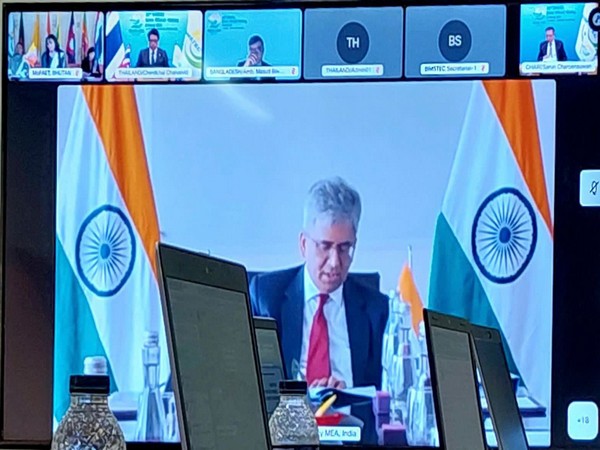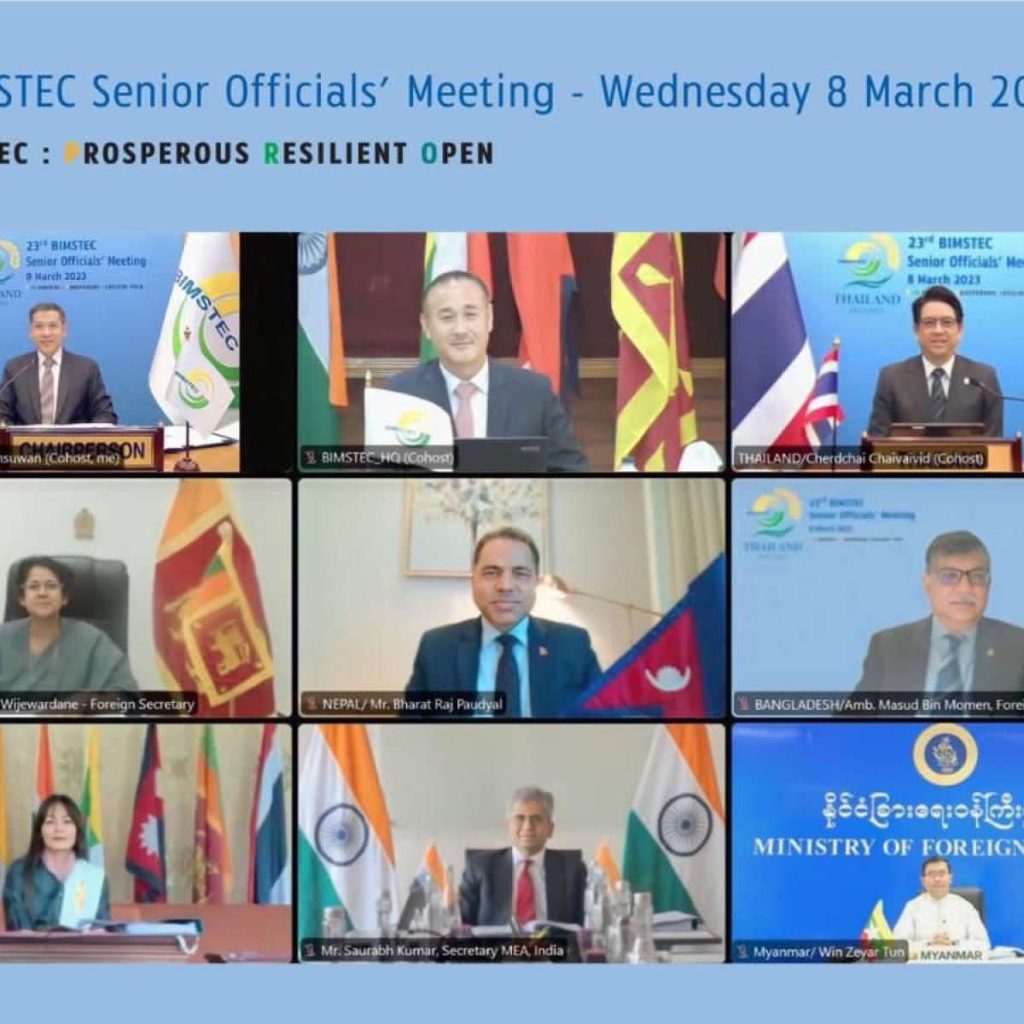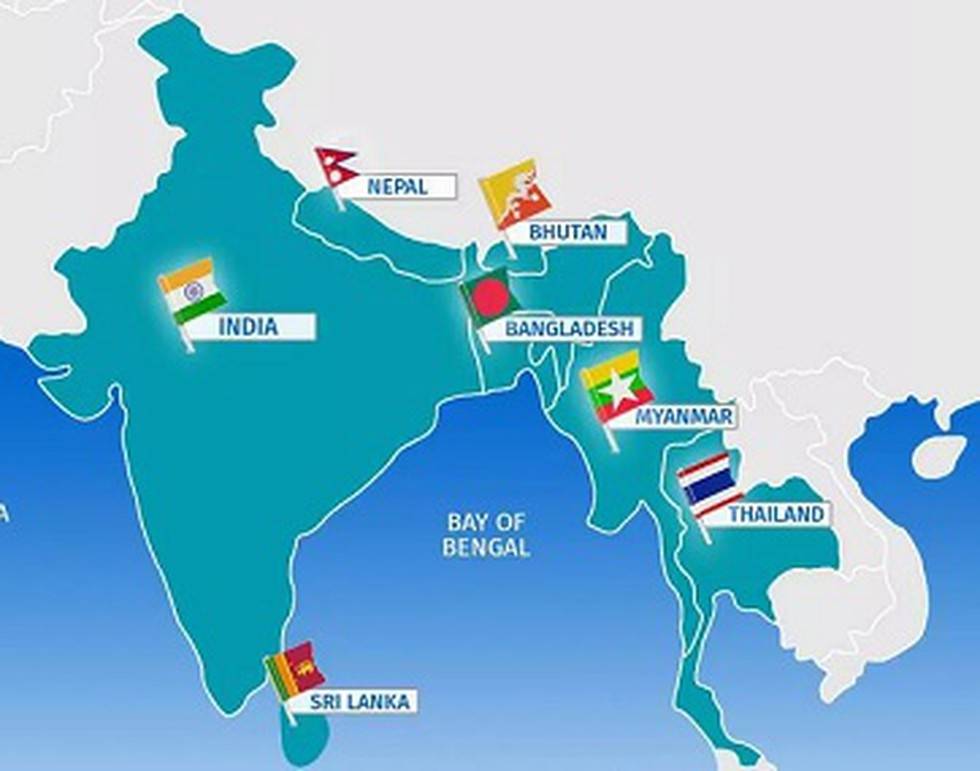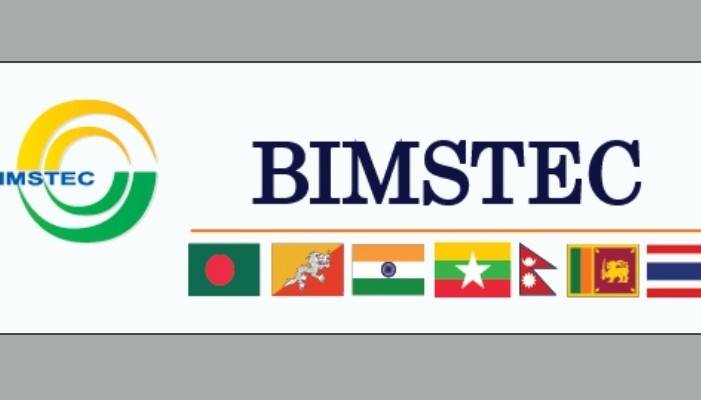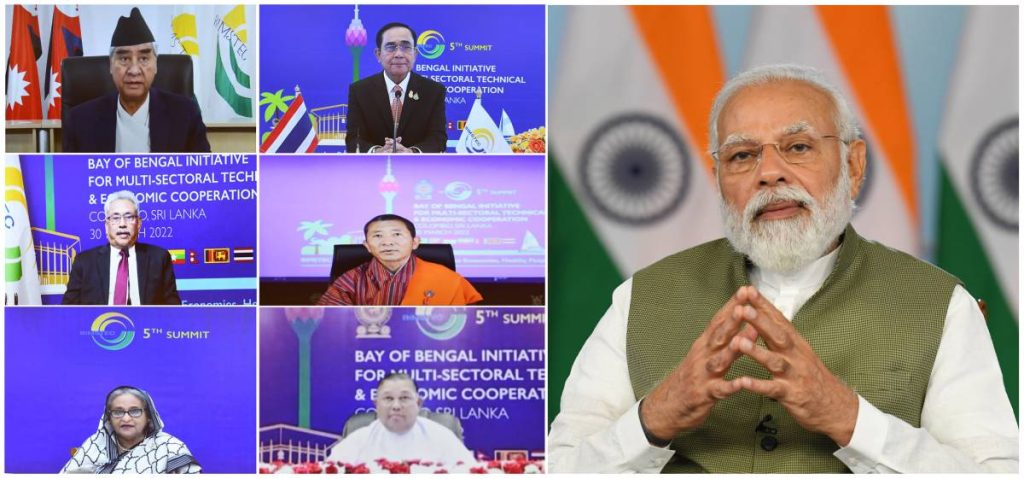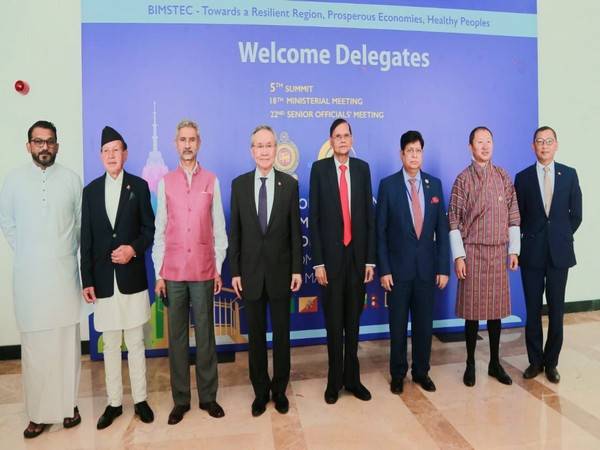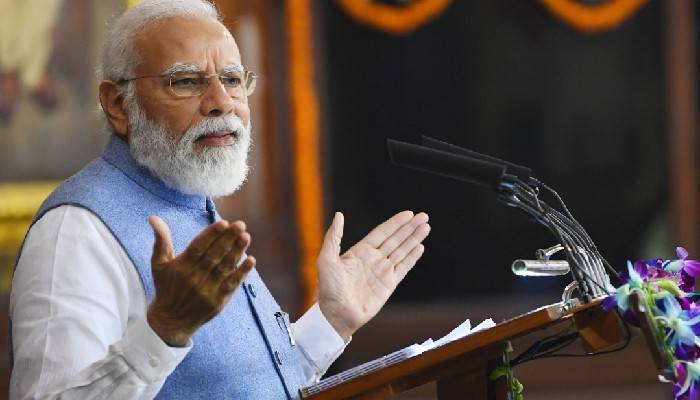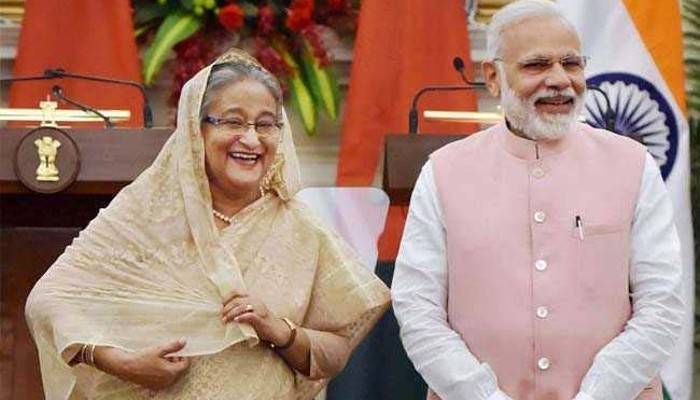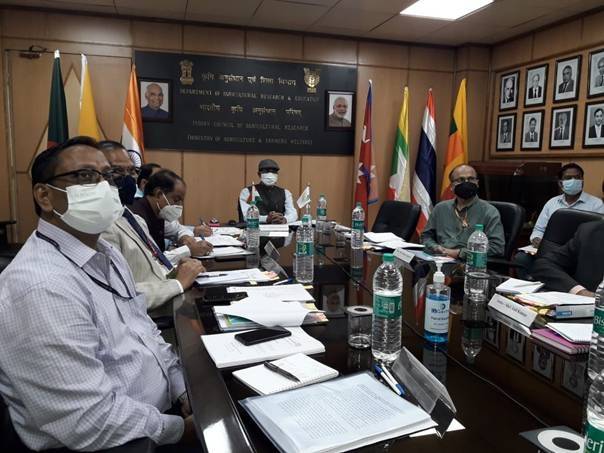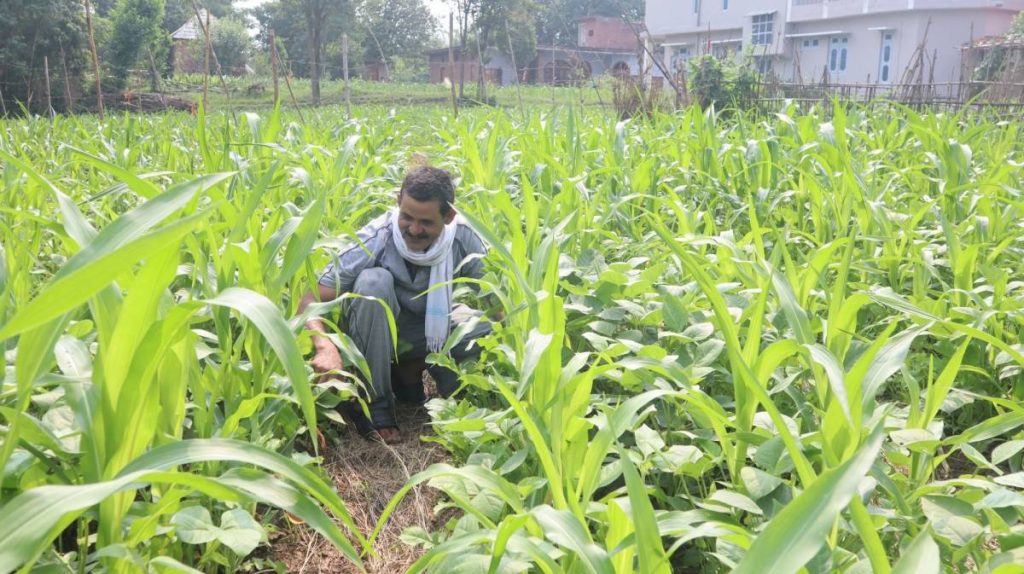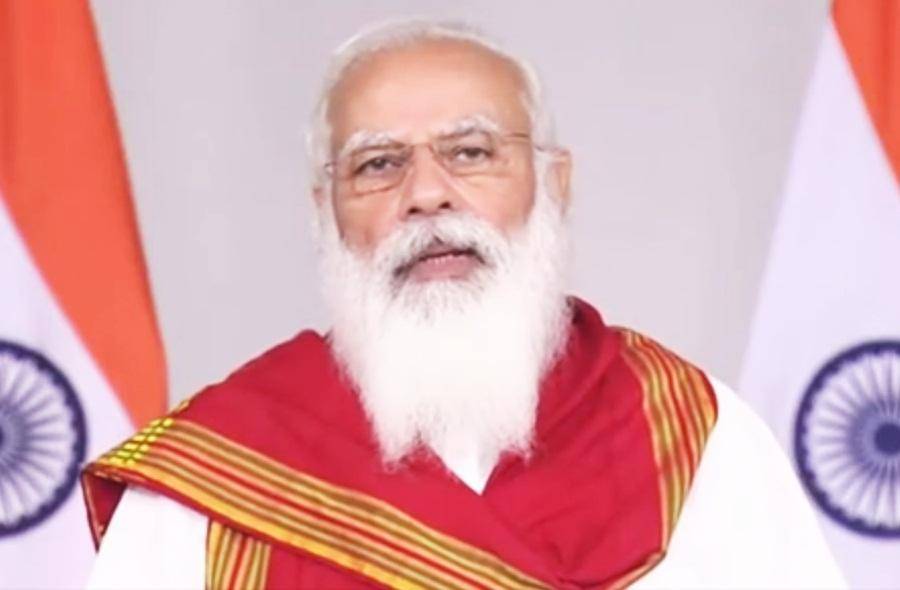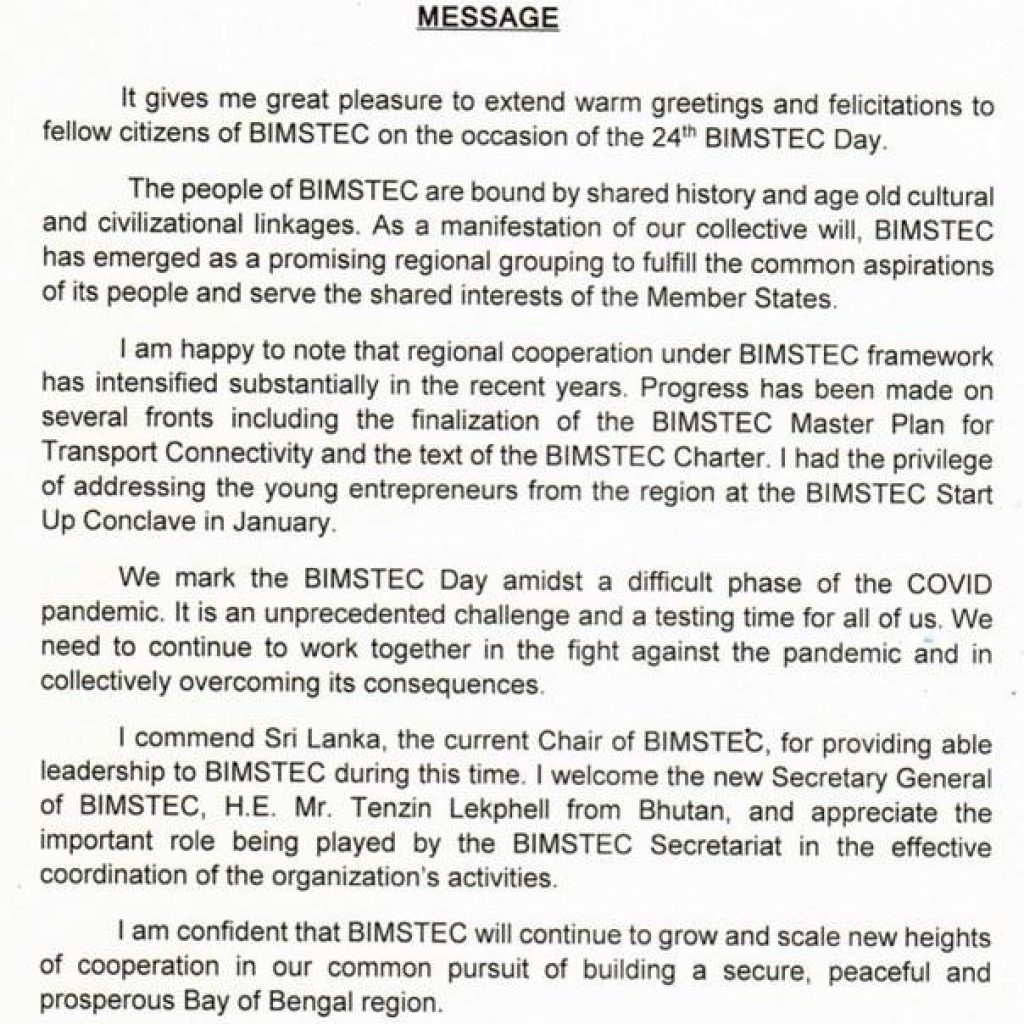BIMSTEC’s new Secretary General, Indra Mani Pandey called for the contribution of all member countries of the grouping to work together in all sectors….reports Asian Lite News
BIMSTEC’s new Secretary General, Indra Mani Pandey, said on Thursday that an agreement on cooperation in maritime transport is expected to be finalised between member countries – Bangladesh, Bhutan, India, Myanmar, Nepal, Sri Lanka, and Thailand – at the grouping’s upcoming summit in Thailand this year.
on the sidelines of the ongoing Raisina Dialogue, Pandey, who assumed his office earlier this year, said ANI that “…My priority as secretary-general is to make sure that the decisions taken by the member states are implemented well. It’s the member states who decide the priority areas for cooperation.”
Pandey called for the contribution of all member countries of the grouping to work together in all sectors. The vast agenda of regional cooperation of BIMSTEC is currently centred around 7 sectors, with each member state playing lead role for one sector.
While Bangladesh leads the sector of Trade, Investment and Development including Blue Economy, Bhutan leads the sector of Environment and Climate Change including Mountain Economy, India leads the Security sector, including maritime, space, cyber and energy security as well as CTTC and Disaster Management. Myanmar leads the sector of Agriculture and Food Security, including fisheries and livestock while Nepal leads People-to-People Contact sector, including culture and tourism. Sri Lanka leads the Science, Technology and Innovation sector including Health and Thailand leads the sector of connectivity.
“One agreement on cooperation in maritime transport which has been finalized and negotiated. It’s just waiting for adoption by the member states at the next summit… The 6th summit of BIMSTEC is expected to take place this year. Thailand is the chair…” Pandey said.
The sixth BIMSTEC summit scheduled to take place in 2024 in Thailand.
For India, the BIMSTEC regional forum acts as a convergence of its “Neighbourhood First” policy, or “Act East” outlook and the interests of the Indian Ocean.
At a session titled ‘The BIMSTEC Parley: Inclusive Growth and Sustainable Development’ participants discussed the significance of the grouping to connect multiple countries and highlighted the cooperation at the international level for the same.
The panel examined how the BIMSTEC countries can intensify their internal and external partnerships.
Tshering Dorji, Director of SELISE Digital Platforms in Bhutan, while addressing the Inclusive Growth and Sustainable Development highlighted that his country faces challenges in connectivity on the international link adding that discussions on the issue are ongoing with Bangladesh and India to get additional connectivity from Bangladesh through India.
“We are facing challenges on the international link and there Bhutan is already at an advanced stage of discussion with Bangladesh and India to get additional connectivity from Bangladesh through India. So this cooperation at a small level within BIMSTEC to improve digital infrastructure,” he said.
“While lot of things are being done in the digital sector in all the countries, we should also be mindful that there are a lot of people in our region who are digitally illiterate. And the digital gap is a big issue that we should be mindful of. And providing digital literacy classes and awareness on the things that are happening I think is very key,” he added.
Additionally, BIMSTEC Secretary General, Indra Mani Pandey called for the contribution of all member counrties of the grouping and asserted that the countries should work together in all sectors.
“I think while there is a lead country for each of the seven sectors, but it doesn’t mean that other countries don’t contribute or they don’t They don’t have the opportunity to do more work in that sector. It’s just to facilitate initiatives in different sectors that we have, member states have decided on the concept of a lead state. But all the member states work together in each sector. So the cooperation remains at the level of all the states working together,” he said.
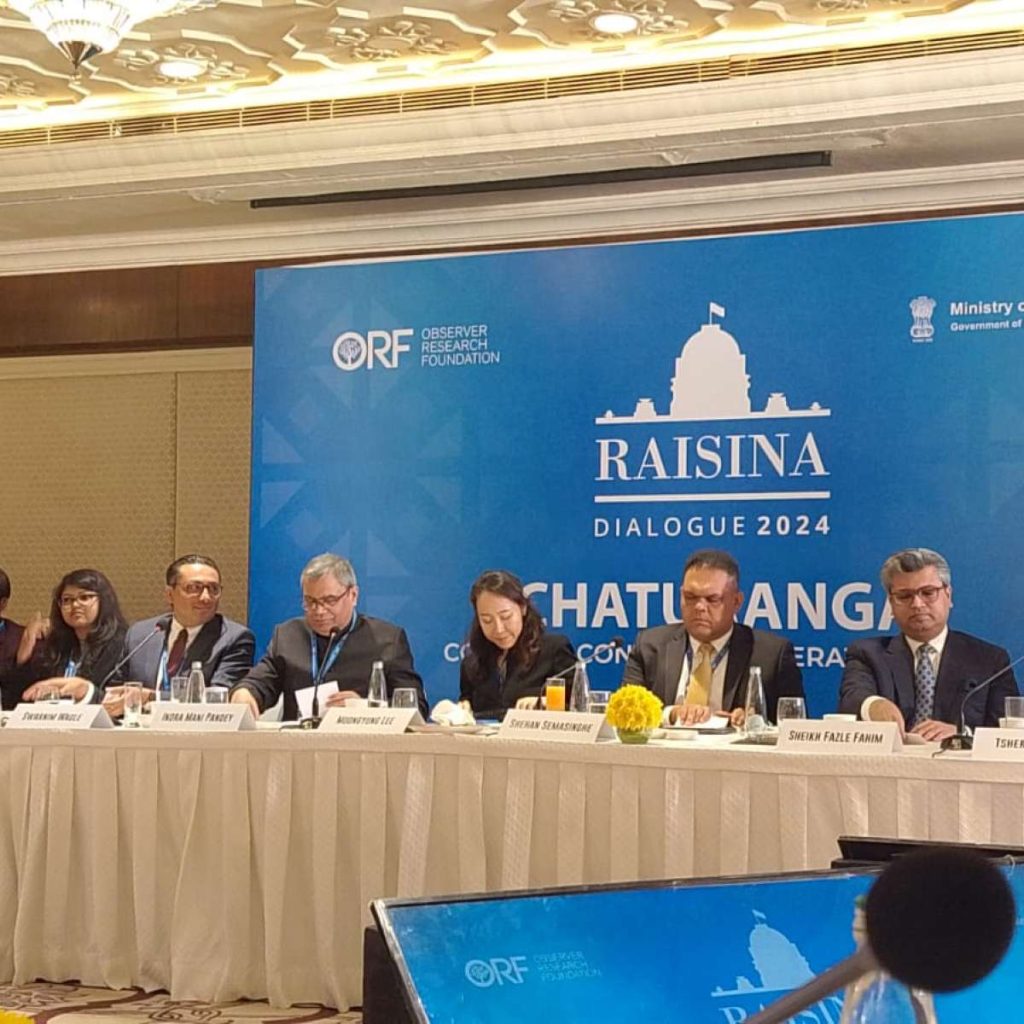
Nepal’s Member of Parliament, Swarnim Wagle said that the group nations should take interest in the regional arrangements between the countries in BIMSTEC as they cooperate in terms of trade.
“So if BIMSTEC, if members don’t see an inherent interest through the regional arrangement, those exchanges of preferences or cooperation and specific projects, then they would turn to. So that’s just a fact of trade. So it’s not a question of threat, in my opinion. On riparian issues, there’s a lot to be learned in the Ganges Brahmaputra river basins on how the Mekong collaboration has happened. Again here, given the asymmetric influence of India, you would need Indian cooperation. And India has tended to prefer bilateral arrangements,” he said.
Its potential can be tapped by connecting the countries of the region better to each other and the world, as well as through directing finance to the green transition and the blue economy. This panel examined how the BIMSTEC countries can intensify their internal and external partnerships.
Meanwhile, Raisina Dialogue is India’s flagship conference on geopolitics and geoeconomics, committed to addressing the most challenging issues facing the global community.
The ninth edition of Raisina Dialogue is being held in Delhi from February 21-23. It is being organised by the Ministry of External Affairs in collaboration with the Observer Research Foundation. (ANI)
ALSO READ: Biden Calls Putin A ‘Crazy ***’



